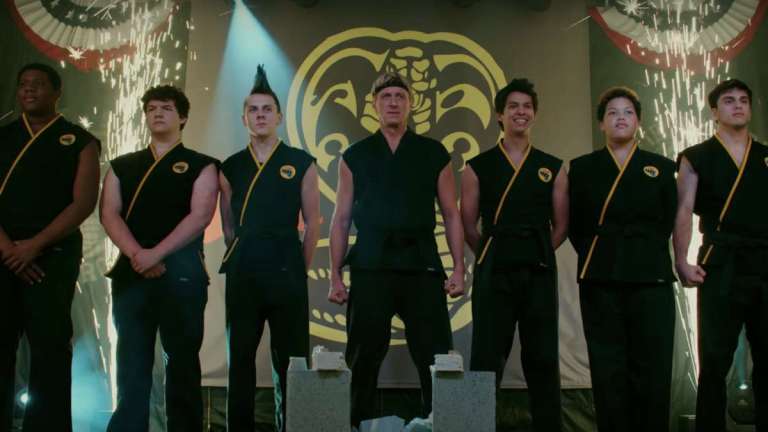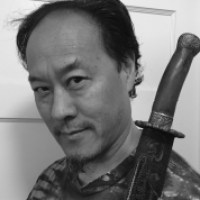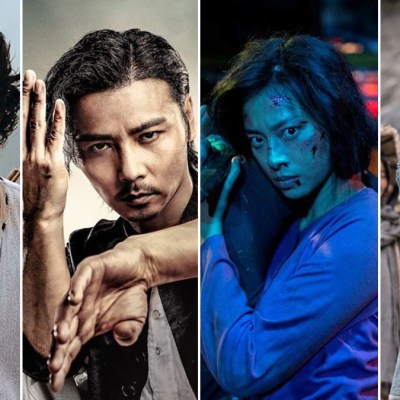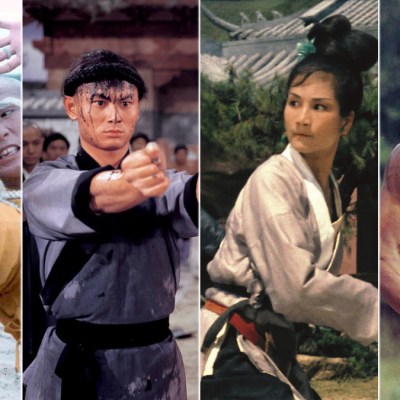The Real History of Cobra Kai
Long before The Karate Kid, there was a real Cobra Kai and it was a respected hardcore full-contact martial arts school.

Cobra Kai Never Dies!
After Netflix acquired Cobra Kai from YouTube Red, it quickly became the #1 streaming show in America. The renewed interest has fans wondering what styles of Karate are portrayed in the series, just like they did back in the 80s when The Karate Kid first came out. Cobra Kai takes plenty of artistic liberties with its portrayals of martial arts training (it’s a show after all – if a sensei really trained his teenagers in a junkyard, their parents would have conniptions).
Nevertheless, as shocking as it sounds, there really was a Cobra Kai. And it didn’t preach “Strike Hard. Strike Fast. No Mercy.” In fact, it didn’t teach Karate at all.
The writer of The Karate Kid, Robert Mark Kamen, stated that the original film is loosely based upon his own experiences. Kamen claims he was jumped by some bullies at the 1964 World’s Fair in New York and the beating inspired him to take up the martial arts. His first sensei was a violent Marine captain that he didn’t stay with for long. He was looking for someone more spiritual, more like Mr. Miyagi. Nevertheless, Kamen’s first veteran teacher served a significant role as the inspiration for his character, John Kreese.
Is This the Real John Kreese?
Where Kamen came up with the name ‘Cobra Kai’ is unclear, however there was already a well-established American school by that name in 1984 when The Karate Kid premiered. Cobra Kai was a reputable martial arts school founded in 1971 by the late Grandmaster Steven G. Abbate.
Abbate was a decorated military veteran, a recon scout with the 4th Marine Brigade, who participated in the landing at Chu Lai in 1965 marking the start of the Vietnam War. He served there for two years until he was wounded. Over a two-hour period, he survived three attacks: he was stabbed, shot, and hit with grenade shrapnel. He earned a Silver Star and was honorably discharged in 1968. Abbate wrote a book based on a diary he kept during the war – Pawns: A Journey into Vietnam was published in 1993.
Prior to serving in the military, Abbate had already begun studying martial arts, but it wasn’t Karate. He started in 1962 at age 16, studying Kung Fu from Hong Kong Grandmaster Fu Lun Cho in Chicago’s Chinatown.
Initially, he learned two styles: Northern Shaolin 7-Star Praying Mantis and Tai Kit Kuen. Abbate translated Tai Kit Kuen as ‘Grand Snake Fist.’ According to Abbate, Tai Kit Kuen can be traced to a Shaolin Monk in 206 BCE, but that is an apocryphal claim. Shaolin Temple wasn’t founded until 497 CE. However back in the seventies, martial arts research was more hearsay than scholarly. As these Asian traditions migrated to America, they frequently suffered from poor translation, so much of what was accepted during that period, especially creation stories, has since been corrected.
Abbate undoubtedly drew the ‘Cobra’ in Cobra Kai from the ‘Grand Snake’ that inspired his martial lineage. ‘Kai’ is a Japanese word for ‘group’ or ‘organization’ which is an awkward school name for a Chinese style. Kai is used in Karate, not Kung Fu. But back in those days, the terminology used in American martial arts was muddled too. And the coolness of that name – Cobra Kai – is undeniable.
Abbate’s historical inaccuracy and mishmash of languages in no way detracts from his accomplishments. He was a product of the times, the nascent years of martial arts in America before all the facts were straightened out. Many of the pioneering masters of his generation espoused similar inaccuracies, but Abbate’s record as a competitor and teacher certifies him as the real thing.
After the war, he went on to serve as a Marine hand-to-hand combat instructor and a Police Officer, all the while continuing to pursue the martial arts. He spent years deepening his knowledge under noted masters in America and Asia. Abbate trained with Bruce Lee, Ed Parker, and Bill Wallace, and was the Midwest representative for Chuck Norris’ Karate International Council of Kickboxing (KICK). He also fought in full-contact tournaments in Hong Kong, Taiwan, Okinawa, and the United States, earning some 300 awards in his competitive career. Beyond his expertise in Kung Fu, he was a black belt in Kenpo Karate so there was some influence of Karate on his Cobra Kai school.
As a well-respected grandmaster in the martial world, Abbate taught thousands of students over his illustrious career. Grandmaster Abbate passed away from cancer in 2007, possibly caused by his exposure to Agent Orange during the war.
Was Grandmaster Abbate the inspiration for Kreese? Kreese was also a military war veteran, although he was in the Army not the Marines. Kreese also earned a Silver Star, but then so did Miyagi.
The Lasting Legacy of the Real Cobra Kai
According to some of his students, Abbate had been asked about using the Cobra Kai name by the producers of The Karate Kid but he denied them permission. They claim that their grandmaster didn’t want Cobra Kai to be portrayed negatively, but the producers used it anyway. There were allegedly some legal actions however both parties still lay claim to the name today. If Kamen’s first instructor really was Abbate or if he got the name from Abbate’s school, he’s not saying, especially not now.
Beyond his own stellar competitive record, Abbate trained many champions, a testament that his teachings work. Consequently, there are still students of Grandmaster Abbate that teach under the Cobra Kai banner. However, just like Kamen, Abbate’s students are not discussing what happened to the press, despite the newfound popularity of Cobra Kai. Now that it’s 36 years after the fact, and Cobra Kai is a major Netflix property, there’s no point in dredging up the past. As Kreese said “Cobra Kai is back where it belongs. Back on top. Everyone closed the book on us – they thought we were done – but now they see that the real story’s only just begun.”
For his thousands of surviving students, Grandmaster Abbate’s achievements cannot be besmirched by Kreese’s villainy. Gian Lencioni studied under the Grandmaster in the mid-90s and although he wasn’t under him for very long, he remembers him with great respect.
“He wasn’t evil like Kreese,” Lencioni says. “He was a genuinely good guy. But training under him was very intense, much more so than we ever saw in Cobra Kai. He was a good coach though. Training there, as short of a time as I did, left a lifelong impression on me.”
For Lencioni, training at Cobra Kai didn’t involve being chased by junkyard dogs or taking a tumble in a cement mixer. Nevertheless, it was hardcore. Abbate was legendary for his militant classes and brutal conditioning drills. “It was like being in the Marine corps,” adds Lencioni with a smile. “Lots of leg sweeps.”
Cobra Kai Seasons 1 and 2 i are now available on Netflix. Season 3 premieres on Netflix in 2021.


